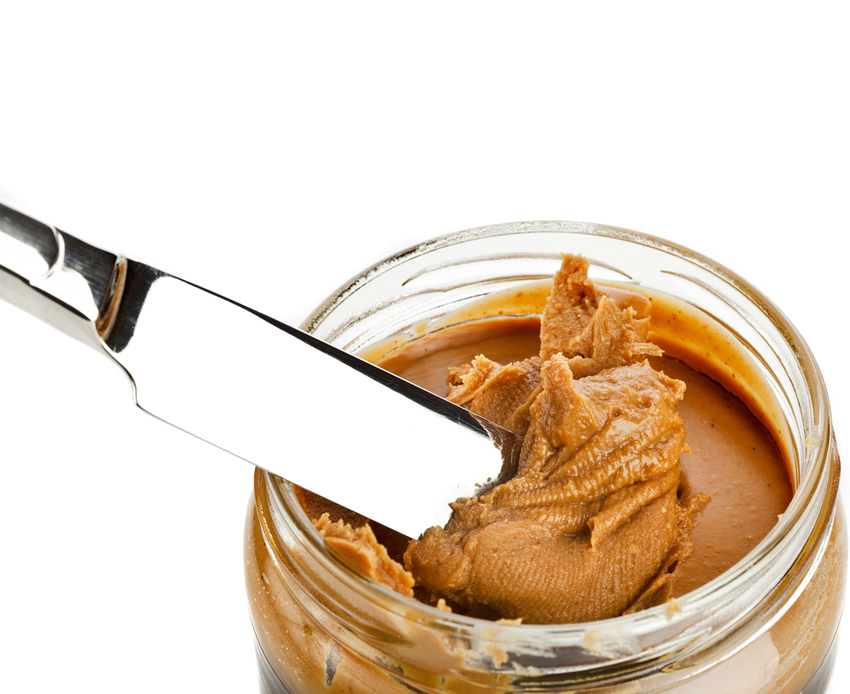A Guide to Nut and Seed Butters

Nut butter photo via Shutterstock
Peanut butter has probably been your go-to choice at the grocery store, but if you look a little closer you’ll find that most stores have a seemingly endless array of nut and seed butters, from sunflower to cashew. Add to that the different textures (crunchy versus smooth), types with added nutrients (peanut butter with omega 3, for example), and organic versus conventional, and the peanut butter aisle suddenly becomes confusing, which makes it difficult to choose the one that’s best for you. But by sticking to a few simple rules, you can find a butter that fits into your healthy diet.
The most important thing is to know what to look for when you read the label. Trans fat, or partially hydrogenated oil, is sometimes lurking in conventional nut butters. Trans fat has been shown to decrease good cholesterol (HDL) and increase bad cholesterol (LDL), so try to avoid nut and seed butters that have partially hydrogenated oil in the ingredient list. Further, some nut or seed butters have added sugar (sometimes listed as evaporated cane juice). These products have a lot of flavor without the added sugar, so choose those without it for a nutritious product that skips the added calories and sweetness.
These are just a few of the nut and seed butters on the market today:
Sunflower seed butter
It’s seed-based, but its creamy texture and nutty flavor makes for an excellent alternative to nut butters. Two tablespoons have 180 calories, 16 grams of fat, 4 grams of fiber, and 6 grams of protein. Sunflower seed butter is also high in monounsaturated fat, a heart healthy fat that has been shown to lower cholesterol.
Almond butter
Most similar to peanut butter, almond butter has a strong, nutty flavor and makes for a tasty addition to snacks like apple slices and crackers or sandwiches. You can also try adding it to smoothies for a boost of protein. Two tablespoons have 190 calories, 16 grams of fat, 3 grams of fiber, and 6 grams of protein.
Cashew butter
Coming in at 190 calories, 15 grams of fat, 2 grams of fiber, and 5 grams of protein per two tablespoons, this type of nut butter is similar to almond and peanut butter, but with less fiber and protein. Use it like you would peanut butter—on sandwiches, in sauces, and as a spread. Cashews are also a source of magnesium, an important mineral that influences energy levels, heart health, and bone health.
Soy butter
Soy butter is a good substitute for those with peanut allergies. It has 170 calories, 11 grams of fat, 2 grams of fiber, and 7 grams of protein in two tablespoons and is comparable to other nut butters. However, unlike the others on this list, soy beans are a complete protein and therefore make for an excellent vegetarian alternative to meat.


